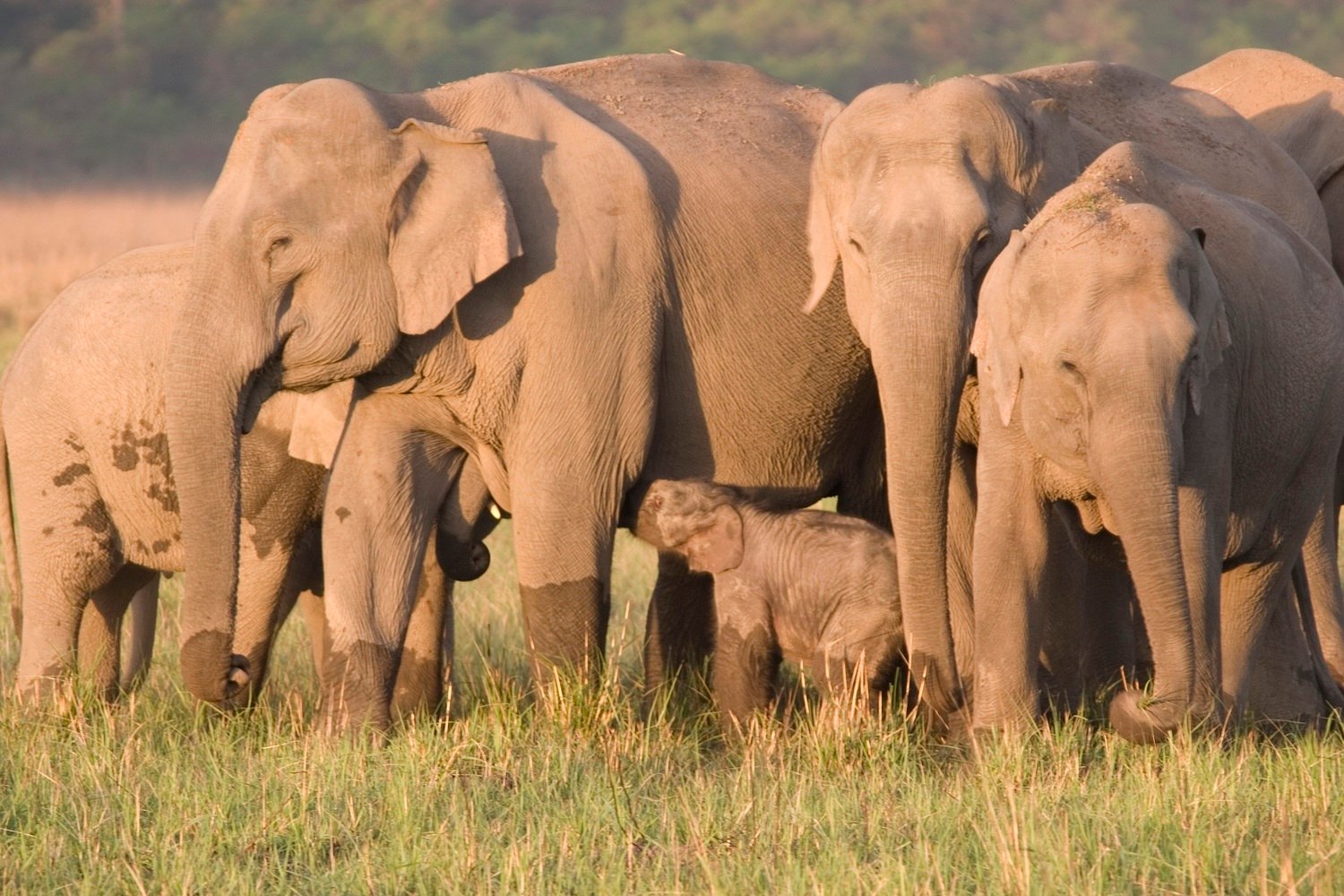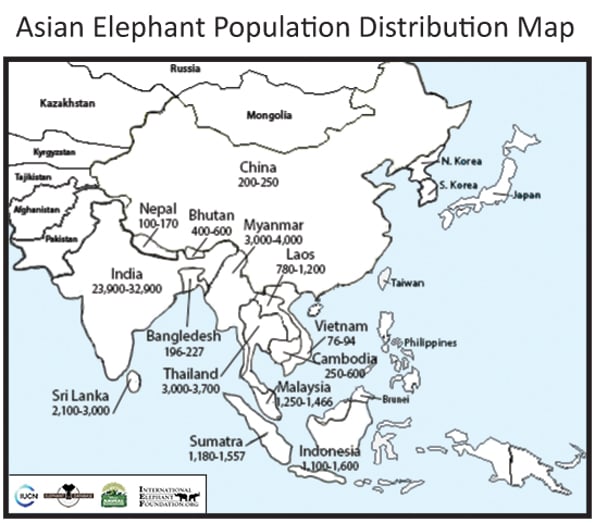
A group of wandering wild elephants, nicknamed "The Northbound Wild Elephant Eating and Walking Tour," have become an overnight Internet sensation in China and globally. The pack first captured the attention of the locals in March 2020, after they suddenly left their home in the Xishuangbanna National Nature Reserve.
While the original group comprised 16 mammals, two decided to return home after a week. The rest have continued their journey northward, stopping only for a short break in November 2020 to allow a newly-born calf and its mother to recuperate.
Since leaving the reserve, the elephants have walked over 310 miles (500 kilometers). Along the way, they have raided farms for food and water, walked through urban streets, and even paid a visit to a car dealership and a retirement home. Thanks to the vigilant eye of the government officials, no animals or people have been hurt. However, the pachyderms have destroyed more than $1 million worth of crops.
Researchers are not sure why the elephants decided to leave or where they are headed. While pachyderms are known to leave their habitats in search of food, this is the longest migration of wild elephants recorded in China. Because of the extreme distance traveled, some speculate that the elephants may be lost. Elephant expert Chen Mingyong told Xinhua News Agency that the herd's leader possibly “lacks experience and has led the whole group astray."
However, other scientists think the elephants were forced to move due to deforestation. Successful conservation efforts have almost doubled the elephant population in the Xishuangbanna National Nature Reserve and the surrounding regions. However, their natural habitat has been substantially reduced to make room for agricultural development.
“We’ve seen elephants expanding their range for decades now, as their populations increase, and they search for more food for the growing herd,” Becky Shu Chen, a conservation project coordinator at the Zoological Society of London, told the Washington Post. “You could say that the increase in agricultural land and plantations in their territory is, for elephants, like finding a big sweet shop, right on their doorstep."

The wandering herd's search for a suitable home has not gone unnoticed by the millions of locals that eagerly follow their daily movements on social media. Adam Chang, assigned to deliver food to the elephants, says, “Before this encounter, I just felt curious about animals. Now, I think I would volunteer in animal rights groups to preserve those giant creatures.”
Resources: CNN.com, NPR.com, CCTV.com
